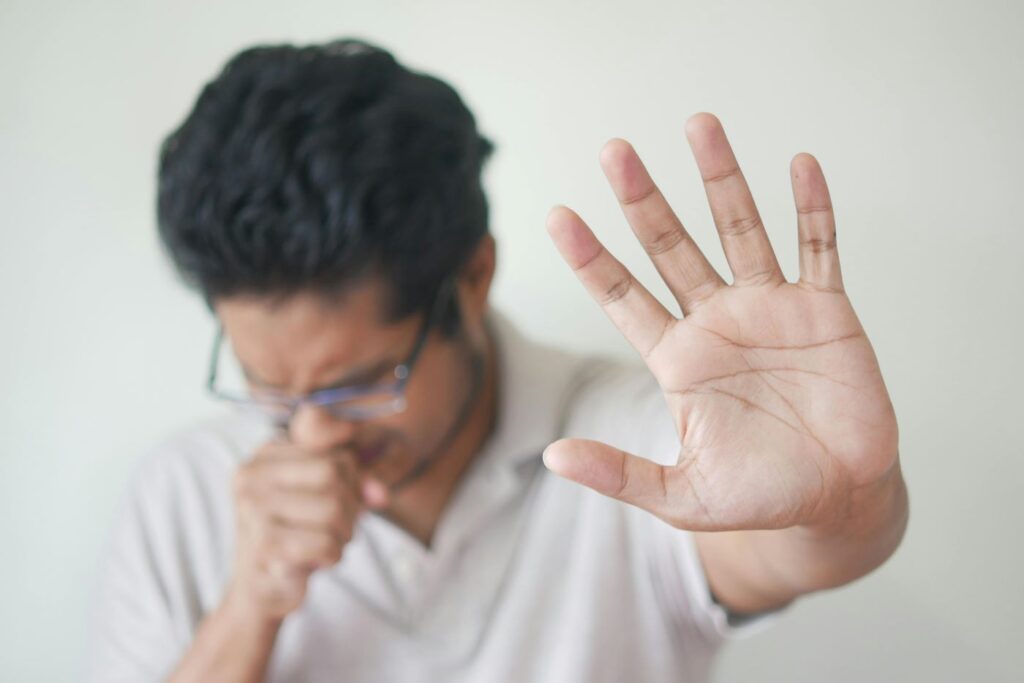Health Conditions
Discover the Shocking Truth About Whooping Cough Disease
Whooping cough, also known as pertussis, is a highly contagious respiratory disease caused by the bacterium Bordetella pertussis. This infection primarily affects infants, young children, and unimmunized individuals, making it crucial to understand the symptoms and preventive measures.
In this article, we will delve into what whooping cough is, how it spreads, and the available treatment options. We will also explore the complications, risks, diagnosis, and prevention methods associated with this disease. Join us as we provide you with valuable information to protect yourself and your loved ones.
Causes and Transmission of Whooping Cough
Whooping cough disease is caused by the highly contagious bacteria Bordetella pertussis. When an infected individual coughs or sneezes, respiratory droplets carry the virus with them. The germs can persist on surfaces for a short time, allowing for indirect transfer when a person contacts them before touching their mouth, nose, or eyes.
The bacteria attach to the respiratory system’s lining, releasing toxins that damage the airways and cause the typical whooping cough symptoms. Infants and young children are more vulnerable to this disease because their immune systems are immature.
Signs and Symptoms of Whooping Cough
The symptoms of whooping cough frequently begin with a runny nose, sneezing, and a moderate cough, similar to the typical cold. However, after one to two weeks, the cough worsens, producing a distinct “whooping” sound when gasping for oxygen. Other symptoms could include fever, tiredness, and vomiting after coughing fits.
It is vital to remember that the symptoms can differ depending on the age of the affected person. In newborns, whooping cough can cause apnea, or stop in breathing. They may also have difficulties feeding and become exhausted. Older children and adults may exhibit milder symptoms, making the condition readily misinterpreted for a persistent cough.

Complications and Risks Associated with Whooping Cough
While whooping cough may be minor in some people, it can cause serious consequences, particularly in newborns and young children. Pneumonia is one of the most prevalent consequences, which can further impair the respiratory system and require hospitalization. Other concerns include ear infections, convulsions, and death.
Individuals who have not been inoculated or have a weaker immune system are more likely to have severe consequences from whooping cough. If you feel you or your kid have contracted this condition, get medical assistance immediately.
Diagnosis of Whooping Cough
Whooping cough is diagnosed using a combination of clinical and laboratory investigations. The doctor will evaluate the symptoms, particularly the distinctive “whooping” cough, and may request a blood or mucus sample for laboratory testing. These tests can detect the presence of bacteria as well as antibodies against them.
Early diagnosis is critical for initiating therapy and preventing the development of the disease. If you or your kid has signs of whooping cough, you should see a doctor right away.

Treatment Options for Whooping Cough
To prevent the spread of whooping cough, therapy often consists of antibiotics, supportive care, and isolation. Antibiotics can lower the severity and length of symptoms while also preventing the bacterium from spreading to others. Rest, water, and over-the-counter cough and fever treatments may all be used as supportive therapy.
It is critical to finish the entire course of antibiotics, even if symptoms improve, to ensure that the bacteria is eradicated. Additionally, infected people should avoid close contact with others, particularly newborns and young children, until they are no longer contagious.
Prevention and Vaccination for Whooping Cough
Whooping cough is best combated through prevention. Vaccination is the greatest way to prevent this disease, and many doses are suggested for optimum effectiveness. The pertussis vaccine is normally given as part of a routine children immunization regimen beginning at 2 months of age.
It is also critical to maintain proper hand hygiene, cover your mouth while coughing or sneezing, and avoid close contact with infected people. Pregnant women are encouraged to have the pertussis vaccine throughout each pregnancy to protect their newborns, as infants are more susceptible to serious problems.

Whooping Cough in Infants and Young Children
Infants and young children are particularly susceptible to whooping cough because their immune systems are still maturing. They are also more likely to have serious consequences from the condition. Vaccination is essential for protecting this age group, as they may not have developed full immunity spontaneously.
Parents and caregivers should be alert to the symptoms of whooping cough in newborns and young children. Prompt medical attention and adherence to preventive measures like vaccination can help them maintain their health and well-being.
Whooping Cough in Adults and Older Individuals
While whooping cough is most commonly associated with children, it can affect anyone of any age, including adults and the elderly. Adults who have not gotten a pertussis booster vaccine are at risk of developing the disease and spreading it to others, particularly vulnerable groups.
Adults with whooping cough may present with milder symptoms or a prolonged cough, making it difficult to recognize the signs. However, obtaining medical assistance and implementing preventive measures are critical in limiting the disease’s spread.
Conclusion
Pertussis, or whooping cough, is a highly contagious respiratory disease that mostly affects newborns, young children, and unvaccinated people. It is critical to understand the causes, symptoms, complications, and preventive strategies for this condition. Vaccination, excellent hand cleanliness, and avoiding close contact with infected people are essential for limiting the spread of whooping cough.
Public health initiatives, education, and access to healthcare resources play crucial roles in mitigating the spread of whooping cough and safeguarding vulnerable populations. By understanding the causes, symptoms, and preventive measures associated with whooping cough, individuals and healthcare providers can work together to protect communities and minimize the impact of this contagious respiratory illness.
By being aware and adopting necessary precautions, we can shield ourselves, our loved ones, and the community from the effects of whooping cough. Remember that early detection and treatment are critical in treating this disease and minimizing its effects.
Trusted Health, Wellness, and Medical advice for your well-being



